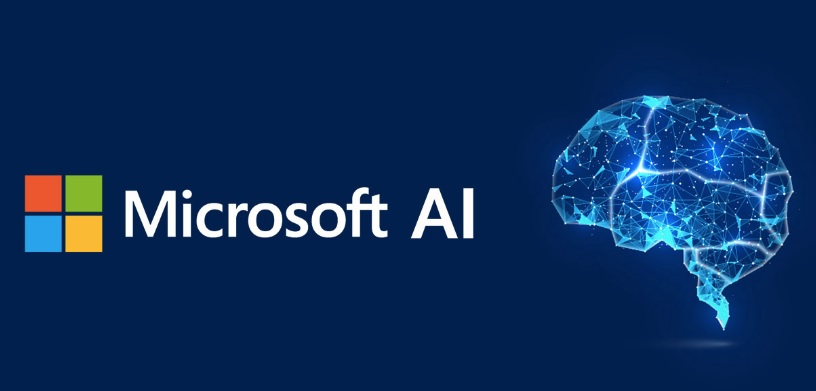
by Matt Marshall — venturebeat.com — In a masterful move exemplifying urgent and instinctive leadership, Microsoft CEO Satya Nadella, personally jumped into the chaos happening over the weekend at the leading generative AI company, OpenAI, and came out with as much as he possibly could have. Working for hours over the weekend, he negotiated a deal that brings Sam Altman, the ousted OpenAI CEO, over to head up a new subsidiary within Microsoft focused on AI innovation – a group that will also include Open AI co-founder Greg Brockman and other departing employees who supported Altman’s strategy.
On the face of it, this is a huge win for Microsoft, because it gets Altman’s growth DNA in the hottest area of tech: generative AI. Altman and Brockman represented the hard-charging, growth minded product side of OpenAI’s business. OpenAI was raising money at terms that value the company at between $80 and $90 billion, meaning Microsoft would have had to pay tens, if not hundreds, of billions of dollars to acquire OpenAI if it ever wanted to. Now, Microsoft is getting OpenAI’s main assets (its brains), and the OpenAI models will probably follow – all presumably at a massive discount. What a bargain, right? That’s what the stock market thought. Microsoft’s shares jumped by more than 1 percent on the opening of trading Monday morning, valuing the giant at a record $2.78 trillion. Well, let’s see. Until this morning, it looked like OpenAI would remain a functioning company, hell-bent on pursuing safe GenAI. That would have presented a stable picture, with Microsoft owning a meaningful stake in that company too.
But suddenly everything was in flux again as of Monday morning. The vast majority of remaining Open AI employees have reportedly supported a letter sent early this morning to that company’s board that they may quit unless the board resigns and reinstates Altman and Brockman. If the remaining board decides to resign, it’s possible that Altman and Brockman may return and lead OpenAI to even more aggressive growth than ever without the constraints of the safety-focused board. That could still be very good for Microsoft, given that it is the largest investor, and participates in any profits that OpenAI throws off. It’s also true that OpenAI’s strong growth and speed in the area of generative AI may create some tension with Microsoft, which is also seeking to be a leader in the area of enterprise generative AI. However, tension isn’t all that bad, and the existing partnership still gives Microsoft a lot of access to technology and know-how. This would certainly give Microsoft a leg-up in the competition against Amazon AWS and Google in providing powerful AI-infused cloud technology solutions to enterprise companies.
But the chances of Altman and Brockman returning to OpenAI are not extremely high, given that the remaining board has already allegedly said allowing the company to be destroyed “would be consistent with the mission.” It’s entirely possible that the board will dig in its heels, and not care about the threat by employees to quit, and that many of Open AI’s employees do go to Microsoft. Microsoft has pledged positions for all Open AI employees should they choose to join. If OpenAI implodes, there’s a big question about what happens to its original AI safety mission, which was presumably an important motivation for many OpenAI employees. And if Microsoft doesn’t ensure stability very soon, it could lead to frustration and distractions for talented employees, who might decide to go elsewhere.
The other big twist on Monday was that co-founder Ilya Sutskever, who has been very vocal about needing to create safeguards around OpenAI’s large language model (LLM) technology, has also sided against the OpenAI board. This could mean either that Sutskever could lead the company’s safety mission within Microsoft, or continue to lead it within OpenAI should the board resign and employees stay. Earlier in the weekend, Nadella and others allegedly supported an effort to bring Sam Altman back to lead OpenAI after he was unceremoniously fired Friday, in order to restore stability to the company. Rumors were that hundreds of OpenAI employees would walk from the company in support of Altman, and Nadella likely drove negotiations with a single-minded focus to create the most stable constellation possible. By late Sunday, however, it was clear the board would not accept Altman back, and it instead hired outsider Emmett Shear, former Twitch CEO, as interim CEO of OpenAI. So Nadella offered Altman a place within Microsoft to continue his mission, though details of the deal struck were not released. Presumably, Nadella offered a strong incentive package, one that likely was easy to make more favorable to what Altman had otherwise: Altman had no direct shares in OpenAI, and likely faced a ton of risk, including potentially legal risk, in going off to start a completely new company.
Nadella said on X that he looked forward to having Alman join a new group setting a new pace for innovation: “We’ve learned a lot over the years about how to give founders and innovators space to build independent identities and cultures within Microsoft, including GitHub, Mojang Studios, and LinkedIn,” he said. Respected Nvidia research scientist and former OpenAI employee and Jim Fan called it a master 4D chess move. Microsoft said it will continue the work it has done with OpenAI and move to launch planned features for its products and partners while also backing a completely new AI research team under its umbrella. This will give the tech giant much easier access to the power of AI for its products, including Windows and Teams. “We look forward to moving quickly to provide them with the resources needed for their success,” Nadella noted in his post.
VentureBeat’s mission is to be a digital town square for technical decision-makers to gain knowledge about transformative enterprise technolog and transact. Discover our Briefings.